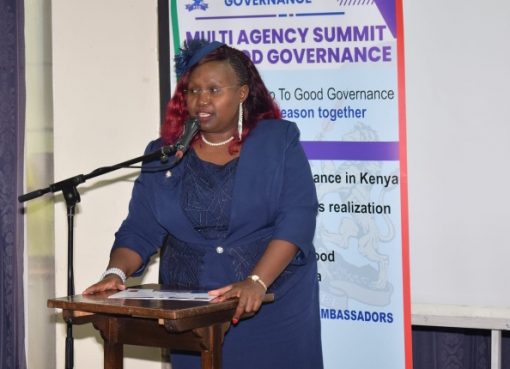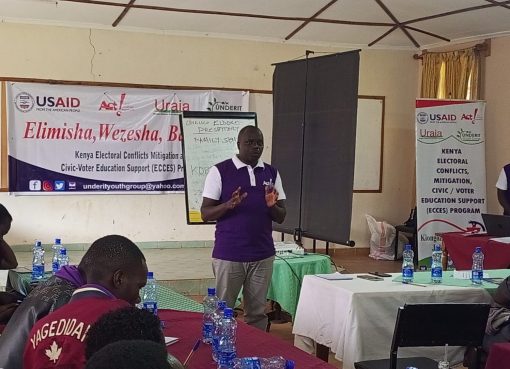The Cabinet Secretary Ministry of Public Service, Youth and Gender (CS), Prof. Margaret Kobia on Monday called upon stakeholders to avail various forms of skills training which will provide widows with sustainable and legitimate sources of livelihood.
Prof. Kobia said that this community undertaking by stakeholders at all levels will boost government efforts in safeguarding widows from the various forms of discrimination that widowhood occasions in their lives.
Speaking during the fourth International Widows day celebrations held in Nairobi, the CS said that the 245 million widows in the world face a lot of challenges such as loosing source of income and security, economic hardships, social discrimination, degrading treatment, physical and mental abuse and thus the need to address the issues.
“To mitigate social discrimination, degrading treatment, physical and mental abuse, my Ministry in partnership with UN agencies is implementing a joint programme on Gender Based Violence. The objective is to protect women from all forms of violence through prevention, protection, programming and partnership building,” Prof. Kobia said.
She reiterated that the partnership would reduce women economic dependence on their family members and afford them a level of liberty and dignity in their lives.
Addressing the issue of economic empowerment, the CS added that her ministry has developed a women’s Economic Empowerment Strategy to provide economic avenues for women through the national & county governments, civil society, development partners and financial institutions.
“As a government, we have put in place various programmes that provide opportunities for capacity building and skills training for widows. One of our programmes is the Access to Government Procurement Opportunities (AGPO). The government has dedicated a 30 percent of all its procurement to enterprises owned by the youth, women and persons with disabilities,” Kobia added.
According to Prof.Kobia, to support widows, the government has established four affirmative action funds administered from her ministry; The National Government Affirmative Action Fund (NGAAF), Women Enterprise Fund (WEF), Uwezo Fund and Youth Enterprise Development Fund which provide loans and financing to the targeted groups to enable them supply goods and services to the government under the AGPO programme.
The Nairobi Women Representative, Esther Passaris said that the key needs for widows are family welfare and stability and they needed help in achieving the two.
Passaris added that some widows had unemployed youths and even people living with disabilities to take care of and thus the need for funding and empowerment for every single one of them.
“Losing a loved one is very challenging and that’s why our widows need protection from issues such as succession and inheritance. Addressing these challenges will enable widows to stand firm and cater for their families effectively.” Passaris said.
She promised to help widows through bursaries and training to enable them have better lives.
Joyce Ngugi, a widow asked the government to consider widows as a disadvantaged group and have a council to represent them and help them tackle some of their challenges.
Ngugi asked for widows to be nominated in various positions of power to include their voices, succession process for widows to be quickened and their diseased spouses’ death certificate to be given to the widows and not anyone else.
The International Widow’s day is marked globally on 24th June and was declared by UN to help in the achievement of the 2030 global goals of ensuring reduced poverty and hunger, improved health and education, reducing inequality and increasing industry innovation.
By Philly Opere/ Joseph Ng’ang’a




